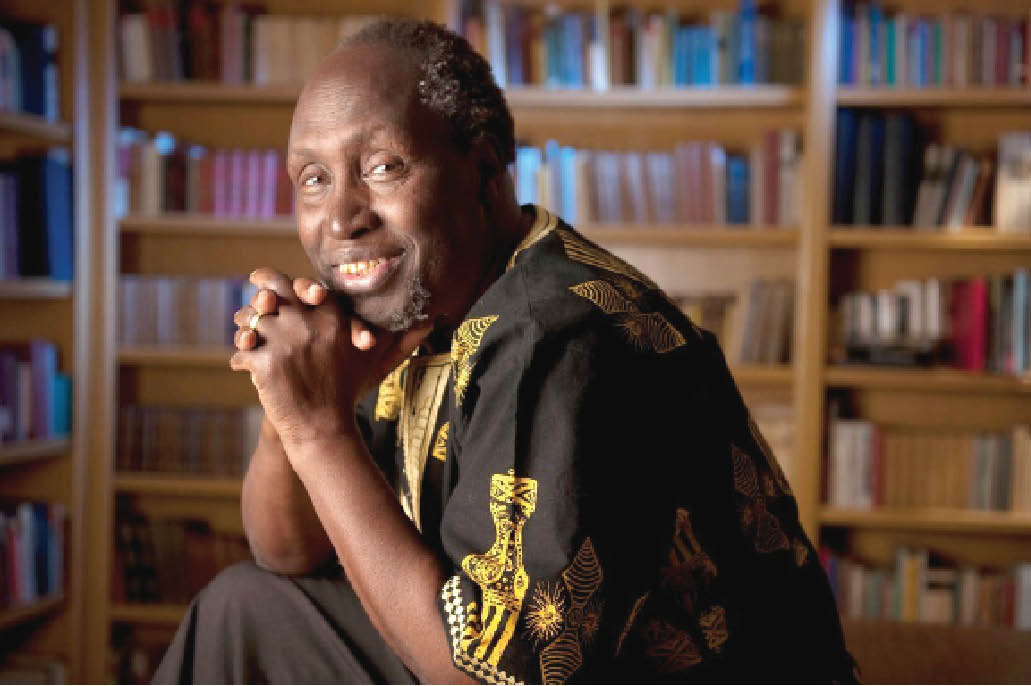Stories That Explore Africa’s Resilient Spirit
‘Minutes of Glory and other stories’ Seldom have the raw truths of Africa been exposed so vividly, yet humorously, as in this collection of short stories by the Kenyan writer Ngugi wa Thiong’o. With tales that tease, then bite, he tackles the absurdities, injustices and corruption of a continent and is never intimidated by the […]

Ngugi wa Thiong’o
‘Minutes of Glory and other stories’
Seldom have the raw truths of Africa been exposed so vividly, yet humorously, as in this collection of short stories by the Kenyan writer Ngugi wa Thiong’o. With tales that tease, then bite, he tackles the absurdities, injustices and corruption of a continent and is never intimidated by the “immensity of the darkness” of which he writes. Nor is he cynical or judgmental. Only someone born from this soil could have grown the stories in “Minutes of Glory.”
Against the harsh rhythms of African drought, when even the insects hum in hunger, the missionaries in one story (“The Village Priest”) strive to undermine the traditional holy men. When the rainmaker dances for relief from drought, Joshua, a trainee Roman Catholic priest, pleads to his new god: “Do not bring rain today. … Let me defeat the rainmaker and your name shall be glorified.” When a deluge follows, Joshua creeps to the old spirit tree and makes peace with his former god.
“Civilized” nations colonized, imprisoned and enslaved thousands, claiming all the while that their god was somehow kinder than those of the “pagans.” In “The Return,” young men like Kamau, who were suspected of rebellion against the intruders, are detained in concentration camps with no trial, only to return years later to find their people striving to accept the white man’s ways. “Without a Shadow of Doubt” tells the story of two boys who prove in their scientific studies that the shadows of all people are the same color: no black, no white. Everyone is therefore equal. Even the Mau Mau uprising could have been prevented if only someone had listened to these brothers.
In the easy, hypnotic section of stories called “Secret Lives,” Ngugi delivers a direct hit at the infamous Mubenzi, that insidious and institutionalized faction of officials who took charge after the colonists finally departed and proceeded to embezzle funds meant for village schools, remote hospitals and potholed roads. All this so they could buy the latest model of Mercedes-Benz. Schools crumbled, leaving young men like Wahinya, who knew that education is the only road out of poverty, with no hope. His dream to own and die in a Mercedes earned him the name Wahinya Benji as he wandered from job to job and drank himself to death.
At the time of his passing, the election for the region’s member of Parliament has reached dramatic heights, with each candidate competing to provide the most extravagant funeral for Wahinya. In excited anticipation, the villagers assemble for the contest and the incumbent dramatically reveals his entry – a coffin shaped like a black Mercedes-Benz 660S. No applause follows. Instead, the villagers move away in silence and bury Wahinya in a simple coffin.
In another story, Mo, a 10-year-old boy, struggles with the white man’s religion. The priest declares drinking alcohol a sin even as he speaks of Jesus converting one goblet of wine into wine for the many. “No wonder Jesus spoke in parables.” Mo has himself observed the priest “drinking and talking dirty”; he has also seen the swollen bellies of certain village women. “Forgive me, Father, for you have sinned.”
“In the dark everything was clear, but in the light everything was dark.” Yet in Mo’s village, people become hopeful when news spreads of the second coming of the Lord: He would return as Michael Jackson, moonwalking into the village after 40 days in the wilderness. Confusing pop stars with parables – moonwalking versus walking on water – is surely forgivable if swollen bellies are.
Despite such stark portraits, what shines through in Ngugi’s stirring pages is a hopeful message. Even after generations of foreign then domestic repression, spiritual confusion, drought and hunger, the resilient spirit – a gathering of real souls – lives on in Africa, no matter whose ghost or god is worshiped.
Source: NYtimes.com
